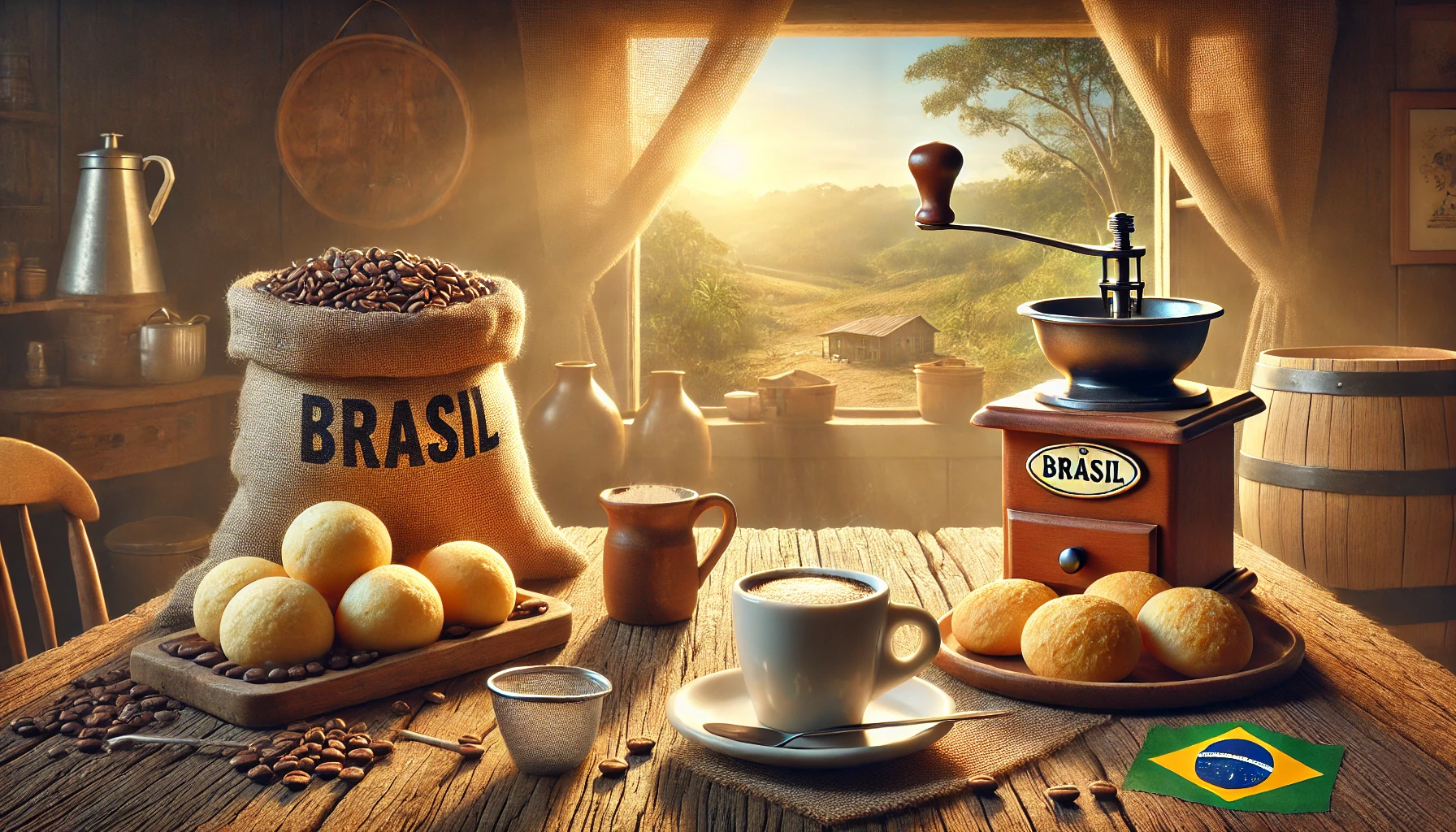Brazil isn’t just the world’s largest coffee producer—it’s also a country where coffee is deeply woven into daily life, culture, hospitality, and even national identity. From the bustling cafés of São Paulo to a tiny kitchen in a rural village, coffee in Brazil is more than a beverage—it’s a symbol of connection, tradition, and pride.
In this article, we explore how coffee shapes Brazilian culture, how it’s consumed, and why Brazil continues to play a vital role in the global coffee story.
A Brief History of Coffee in Brazil
Coffee first arrived in Brazil in the early 18th century, when seedlings were reportedly smuggled out of French Guiana. The plants thrived in Brazil’s tropical climate and fertile soil, and by the mid-1800s, the country had become the world’s leading coffee exporter—a title it still holds today.
Over the centuries, coffee cultivation expanded across regions like São Paulo, Minas Gerais, Espírito Santo, and Bahia. It became not only a major economic force but also a cultural icon.
Cafézinho: The Heart of Brazilian Hospitality
In Brazil, you don’t just drink coffee—you share cafézinho. This small, strong cup of sweetened black coffee is offered everywhere: at work, in homes, in shops, after meals, and even during quick visits to the bank or salon.
What is Cafézinho?
- Served in: Small cups (demitasse or glass)
- Brewed with: A cloth or paper filter, using finely ground coffee
- Typically: Pre-sweetened during brewing
- Flavor profile: Bold, smooth, slightly bitter, and sweet
More than a drink, cafézinho is a ritual of hospitality. Refusing a cafézinho is almost considered rude, and accepting one is a universal sign of friendliness.
Coffee Consumption in Daily Life
Coffee is consumed throughout the day in Brazil:
- Morning: A quick cafézinho with or without milk (pingado)
- After lunch: Another small cup to aid digestion
- Afternoon breaks: Often paired with pão de queijo (cheese bread) or cake
- Evening: Sometimes consumed before dinner, rarely avoided due to caffeine
Many Brazilians enjoy filtered coffee at home, brewed in a cloth filter called a coador de pano—a nostalgic method passed down through generations.
The Rise of Specialty Coffee in Brazil
While Brazil is traditionally known for quantity and commodity-grade beans, the specialty coffee movement is gaining momentum.
Producers are now:
- Investing in better post-harvest processing (natural, pulped natural, and washed methods)
- Focusing on traceability and sustainability
- Experimenting with rare varietals like Bourbon, Catuai, and Geisha
- Winning international coffee competitions and commanding higher prices
Cities like São Paulo, Belo Horizonte, and Curitiba are now home to vibrant third wave cafés serving carefully brewed coffees with tasting notes like citrus, nuts, and chocolate.
Coffee in Brazilian Economy and Identity
Coffee has long been a pillar of Brazil’s economy. Even today, it accounts for more than 30% of global coffee exports, and the country produces both Arabica and Robusta beans.
But beyond economics, coffee holds emotional and symbolic value. It represents:
- Hard work: Generations of families working on coffee farms (fazendas)
- Tradition: From farm to kitchen, rituals are passed through time
- Unity: Coffee brings people together across class and region
- National pride: Brazil’s role as a leader in the coffee world is a point of pride for many citizens
Regional Coffee Styles and Differences
Different parts of Brazil offer unique coffee experiences:
Minas Gerais
- Known for its sweet, nutty coffees
- Major producer of specialty beans
- Home to the famous Cerrado Mineiro region
São Paulo
- The historical heart of Brazil’s coffee trade
- Offers both traditional and modern coffee culture
- Hosts major industry events and cafés
Espírito Santo
- Specializes in Robusta (Conilon) production
- Increasing investment in quality and processing
Bahia
- Produces high-quality Arabica with fruity profiles
- Strong specialty market growth in recent years
Coffee and Social Moments
In Brazilian homes and offices, coffee plays a role similar to tea in British culture—it accompanies conversations, comforts during stressful days, and marks moments of connection.
It’s common to invite someone in for a coffee as a warm, informal gesture. Many social gatherings begin or end with cafézinho, and it’s a staple in both urban and rural settings.
Final Thoughts: More Than a Drink
Coffee in Brazil is a shared language. It connects people from different backgrounds, celebrates heritage, and bridges the gap between past and future.
Whether served in a fancy São Paulo café or brewed with a cloth filter on a farm in Minas, Brazilian coffee reflects the soul of a nation—welcoming, strong, grounded, and full of character.
So the next time you enjoy a cup of Brazilian coffee, take a moment to savor not just the flavor, but the culture behind it.
